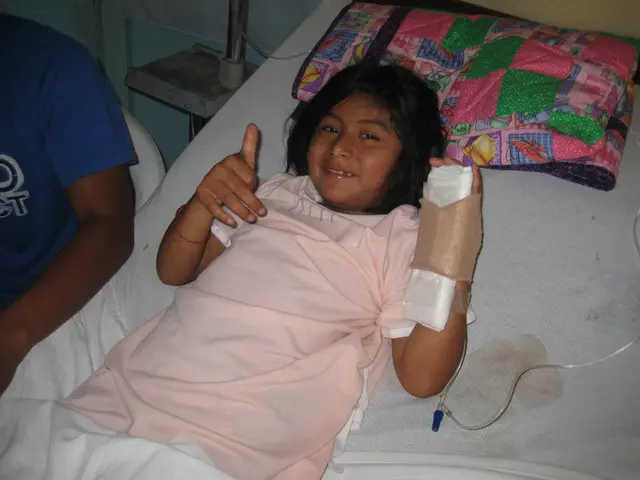Daring Ukrainian Sneak Attack on Russian Bases
Russia's air bases under heavy attack in extensive operation dubbed 'Spiderweb', orchestrated by Ukrainian forces.
Ukraine pulled off a bold operation, the "Spiderweb," by sending drones deep into Russia to attack numerous air bases, causing substantial damage to over 40 aircraft and estimated $7 billion in damage. This audacious move came just before expected peace talks in Istanbul, making it one of the most ambitious simultaneous strikes on Russian air bases by Ukraine since the conflict began.
An insider from Ukrainian Security Service, or SBU, proudly stated that Russian bombers were "going up in smoke" at four different airfields hundreds of miles apart. The drones were reportedly launched from trucks inside Russia, and Ukraine had spent over a year and a half in planning and executing this operation.
President Volodymyr Zelensky revealed that 117 drones were used in the attacks, making it a unique and flawlessly planned operation.
The Trump administration wasn't pre-briefed about this daring undertaking.
A Crippling Blow to Russia's Air Power
The attack hit several strategic targets, such as the Olenya base near Murmansk in the Arctic Circle and the Ivanovo air base, a hub for Russian military transport aircraft. The operation is believed to have caused 34% of Russia's strategic cruise missile carriers at its main air bases to go offline, posing a significant threat to Russia's air power.
The Russian Ministry of Defense referred to the drone strikes as "terrorist attacks." However, the ministry admitted that strikes were repelled in several regions, and "several pieces of aircraft" caught fire in the Murmansk and Irkutsk regions, although the fires were soon extinguished. Thankfully, no casualties were reported as a result of the attacks.
This audacious operation by Ukraine comes soon after a series of events, with a Russian attack involving 472 drones and a suspected partial collapse of two bridges in Russia's western regions bordering Ukraine. The looming peace talks in Istanbul have been strained by uncertainty, with US President Donald Trump expressing frustration over Russian President Vladimir Putin's reluctance to advance the peace talks.
Putin had proposed direct talks in Turkey earlier this month but failed to show up, despite an agreement from Zelensky to attend. Instead of face-to-face discussions, low-level delegations were sent to negotiate, with a framework from the Ukrainian delegation suggesting key principles like a full and unconditional ceasefire, an exchange of prisoners, and the return of abducted children.
With this drone attack, Ukraine once again asserts its determination to defend its land, vowing to strike the enemy at sea, in the air, and on land, and even from underground if necessary. The SBU proudly declared, "We are not intimidated. We will continue fighting until our land is free."
CNN's Frankie Vetch, Eve Brennan, and Catherine Nicholls contributed to this report.
Behind the Scenes of Operation Spiderweb
Operation Spiderweb marks a turning point in warfare, with Ukraine showcasing its ability to conduct large-scale drone strikes on strategic targets deep within an enemy's territory. The operation demonstrates the risks posed by drone warfare, as small, hard-to-detect drones are used to penetrate close to targets, making conventional air defenses highly vulnerable.
The attack on Russian air bases targeted mission-critical infrastructure, including the Olenya Air Base in Murmansk Oblast, which plays a crucial role in Russia's strategic aviation infrastructure. To carry out this operation, the drones were covertly transported into Russia and launched from hidden compartments inside cargo trucks. These drones were often disguised inside wooden mobile homes mounted on trucks, with the drones hidden under roofs that were remotely opened when the time was right for the attack.
This operation is the latest example of Ukraine's evolving capabilities in asymmetric warfare, marking a new era in drone warfare that could have significant implications for future conflicts.
- The audacious move by Ukraine, known as Operation Spiderweb, showcased its expertise in the realm of finance and industry, as it spent over a year and a half planning and executing the operation, using drones in a strategic attack on Russian air bases.
- The attack on Russian air bases, particularly the Olenya base, was significant in the politics of war-and-conflicts, as it posed a critical threat to Russia's air power.
- The general news of Operation Spiderweb reveals the advancements in the aerospace industry, with Ukraine demonstrating its capacity to conduct large-scale drone strikes on enemy territory, posing new challenges in the realm of defense and security.





